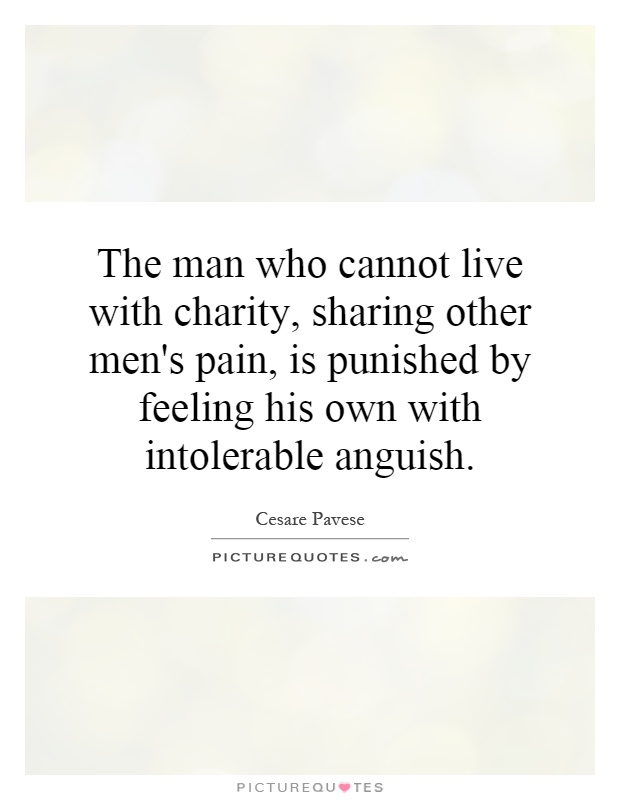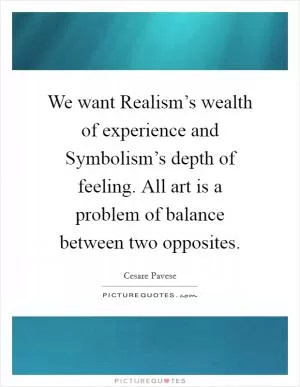The man who cannot live with charity, sharing other men's pain, is punished by feeling his own with intolerable anguish

The man who cannot live with charity, sharing other men's pain, is punished by feeling his own with intolerable anguish
Cesare Pavese, an Italian poet, novelist, and translator, was known for his deep understanding of human emotions and the complexities of relationships. His works often explored themes of loneliness, alienation, and the search for meaning in life. The quote, “The man who cannot live with charity, sharing other men's pain, is punished by feeling his own with intolerable anguish,” reflects Pavese’s belief in the importance of empathy and compassion towards others.In Pavese’s writings, characters often struggle with their own inner demons and feelings of isolation. They are haunted by their pasts, their regrets, and their unfulfilled desires. However, Pavese suggests that by reaching out to others, by showing kindness and understanding, one can alleviate their own suffering. By sharing in the pain of others, one can find solace and connection, breaking free from the prison of their own self-absorption.
The idea of charity and sharing other men’s pain is not just a moral imperative for Pavese, but a psychological necessity. He believed that human beings are inherently social creatures, and that our well-being is interconnected with the well-being of others. By turning away from the suffering of others, by refusing to empathize and offer support, one only deepens their own sense of isolation and despair.
Pavese’s own life was marked by personal struggles and emotional turmoil. He battled with depression and feelings of alienation, which ultimately led to his tragic suicide at the age of 41. It is perhaps through his own experiences of pain and suffering that Pavese came to understand the transformative power of empathy and compassion.












 Friendship Quotes
Friendship Quotes Love Quotes
Love Quotes Life Quotes
Life Quotes Funny Quotes
Funny Quotes Motivational Quotes
Motivational Quotes Inspirational Quotes
Inspirational Quotes